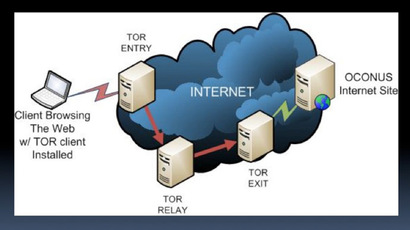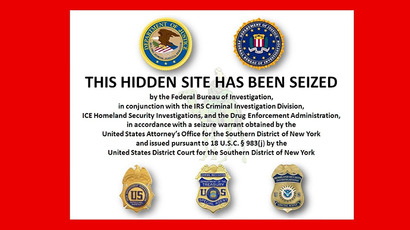New Google technology ‘uProxy’ to provide uncensored Internet for global activists

Internet privacy advocates and activists suffering under repressive government regimes may now have a new avenue for free expression with uProxy, a tool developed by Google that is expected to bypass censorship and invasive government monitoring.
Developed by Google’s New York City-based think tank Google Ideas, uProxy is a peer-to-peer service that allows one to establish an encrypted internet connection with someone they trust. Google, which provided the funding to developers Brave New Software and the University of Washington, hopes the new technology will outwit government officials around the world who have cracked down on the internet in recent years.
“If you look at existing proxy tools today, as soon as they’re effective for dissidents, the government finds out about them and either blocks them or infiltrates them,” Jared Cohen, director of Google Ideas, told Time magazine. “Every dissident we know in every repressive society has friends outside the country whom they know and trust. What if those trusted friends could unblock the access in those repressive societies by sharing their own access? That was the problem we tried to solve.”
Like Tor, uProxy consists of a simple browser extension that is capable of finding a user’s friends on Facebook. The service, currently in “restricted beta” mode, is not an anonymizing network like Tor but will render an individual connection indistinguishable from all other encrypted conversations online. That anonymity might itself be valuable, considering the lengths that agencies such as the NSA have gone to in order to crack Tor’s security.
“There’s no uProxy-specific mark on traffic that identifies the traffic as being sent by uProxy,” the service’s website notes.
A user in the US would essentially be able to provide an American connection to a friend in Iran, for example, without fear that the link would be revealed.
“The user in Iran can get unfiltered access to the internet that’s completely uncensored and will look just like it does in the US,” Cohen went on. “Every dissident we know in every repressive society has friend outside the country whom they know and trust. What if those trusted friends could unblock the access in those repressive societies by sharing their own access? That was the problem we tried to solve.”
“This is a company of activists and white-hat hackers,” he said. “When you work at Google and tell these engineers that their skill-set is relevant to somebody in Iran who doesn’t have access to information in their country or the rest of the world, it really inspires them to want to do something about it. There is a genuine altruism that exists at this company, and that’s why I’m here and not anywhere else.”
Google Ideas will introduce uProxy in a New York City conference titled “Conflict in a Connected World.” The event will also be the debut of Project Shield, a measure that will help human rights groups, major media organizations, and others fend off the distributed denial-of-service (DDoS) attacks which incapacitate a website by overwhelming it with traffic.
“We believe in human rights, we believe in free expression,” Cohen said. “We believe in election monitoring, and we believe in independent media.”














